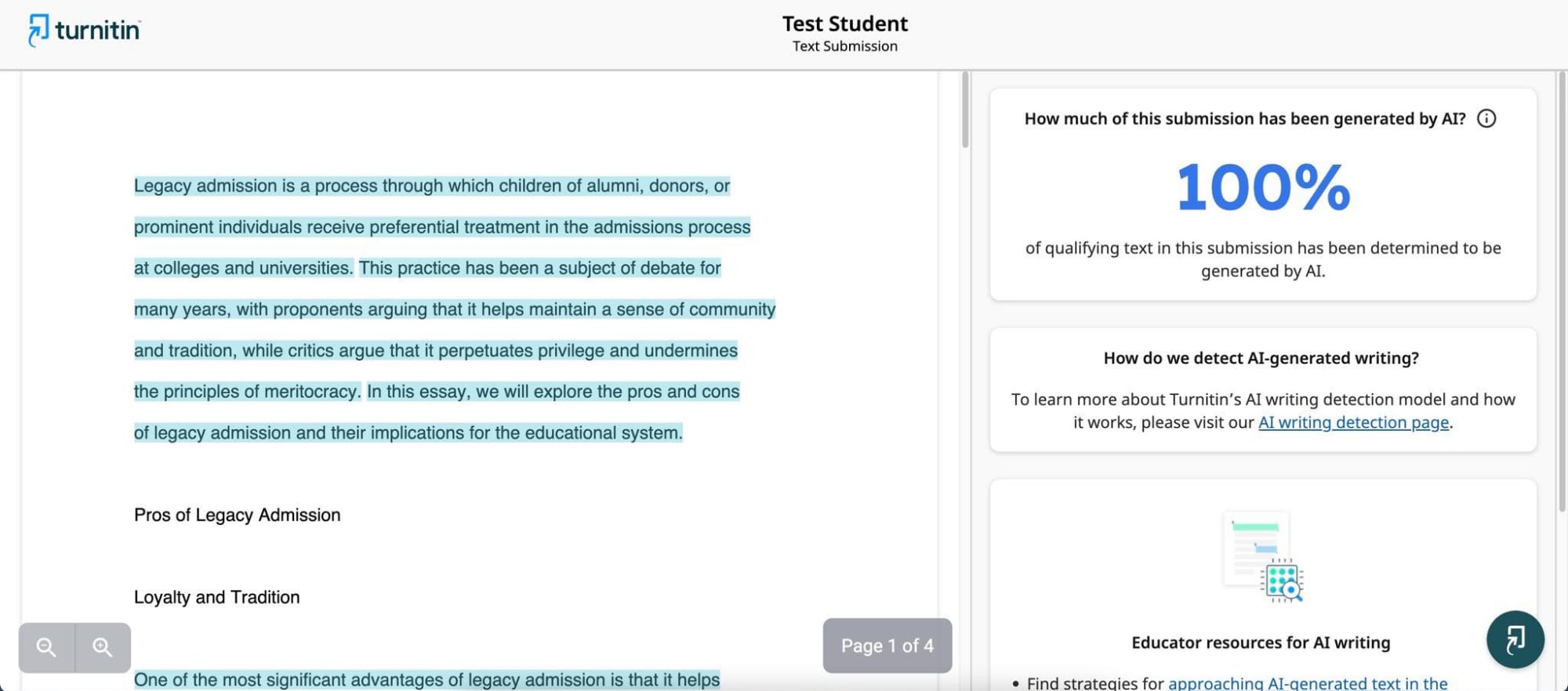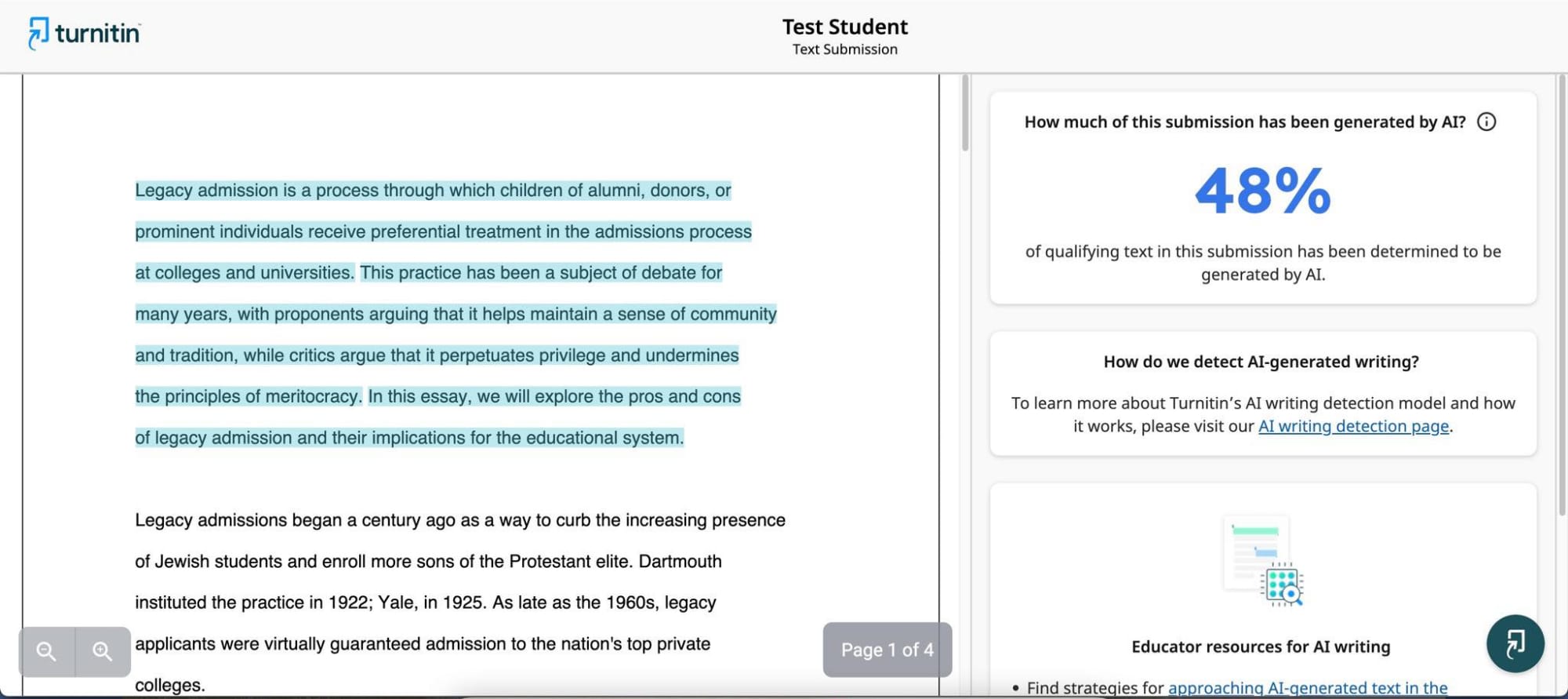As technology continues to advance, the use of AI detectors has become increasingly common in various fields. But just how accurate are these AI detectors?
In this article, I will explore the reliability and precision of AI detectors and shed light on their effectiveness in accurately detecting and analyzing information. From facial recognition software to text analysis systems, AI detectors have the potential to significantly impact our lives. Let’s delve into the world of AI detectors and discover if they truly live up to their promise of accuracy.

Learn more related articles:
- 8 Free AI Tools To Boost Your Daily Productivity
- 10 Must-Have AI Tools For Your Business Uses In 2023
- 10 Top AI Tools For Developers
- What Is Google Generative AI And It’s Advantage
Are AI Detectors Accurate?
As a technology enthusiast, I often find myself pondering over the accuracy of AI detectors and their importance in various aspects of our lives. AI detectors play a significant role in numerous fields, from security and healthcare to self-driving cars and even social media moderation. As we continue to rely on artificial intelligence for decision-making, it becomes critical to understand the accuracy of these detectors and their ethical implications.
The Importance of AI Detectors
AI detectors have become increasingly important in today’s technology-driven world. They are designed to recognize and interpret patterns, detect anomalies, and classify information with a high level of accuracy. The ability of AI detectors to analyze massive amounts of data quickly and accurately makes them invaluable in various domains. For instance, in the field of security, AI detectors help identify potential threats, such as weapons or dangerous objects, in real-time. Furthermore, in healthcare, AI detectors can analyze medical images and provide accurate diagnoses, enabling faster and more effective medical treatments.
Understanding AI Detectors
To comprehend the accuracy of AI detectors, it is essential to understand how they operate. AI detectors utilize machine learning algorithms that learn from a vast amount of training data. This data is used to train the model to recognize specific patterns or objects. The more diverse and comprehensive the training data, the better the accuracy of the AI detector. Once trained, the detector can then apply its knowledge to new data inputs and provide accurate results.
There are various types of AI detectors, such as image recognition detectors, speech recognition detectors, and even sentiment analysis detectors. Each detector has its own unique set of algorithms and training data, tailored to the specific task it is designed to perform. For example, an image recognition detector for self-driving cars would be trained with data containing various images of objects on the road, allowing it to accurately identify pedestrians, vehicles, and traffic signs.
Factors Affecting Accuracy
While AI detectors can be highly accurate, they are not immune to challenges that may affect their performance. Several factors can impact the accuracy of AI detectors, such as the quality of training data, environmental conditions, and the complexity of the task itself.

Training Data Quality
The quality and diversity of the training data directly impact the accuracy of AI detectors. If the training data lacks diversity or contains bias, the detector may not perform optimally in real-world scenarios. For instance, if an AI detector for facial recognition is predominantly trained on a particular racial or ethnic group, it may struggle to accurately identify individuals from other backgrounds.
To overcome these challenges, it is crucial to ensure the training data is diverse, representative of all demographics, and free from bias. Additionally, constant updates and retraining of the AI detector with new and relevant data are necessary to adapt to changing circumstances and improve accuracy.
Accuracy Assessment Methods
To evaluate the accuracy of AI detectors, various assessment methods are employed. One commonly used metric is precision, which measures how accurately the detector identifies positive instances from the total instances it classifies. Another vital metric is recall, which measures how many positive instances the detector accurately identifies out of all the actual positive instances. Both precision and recall provide insights into the performance and accuracy of the detector.
Moreover, researchers and developers often utilize data sets with known ground truth labels to compare and assess the accuracy of different AI detectors. This allows for comprehensive evaluations and comparisons between different models, aiding in the improvement of AI detector accuracy.

Comparing AI Detector Performance
Comparing the performance of different AI detectors is essential for identifying the most accurate option for a specific task. The accuracy of AI detectors can vary greatly depending on the problem they are addressing, the specific algorithms used, and the quality of the training data. Performance benchmarks and competitions are often organized to evaluate and compare the performance of different detectors, encouraging advancements and pushing the boundaries of accuracy in AI technology.
Challenges in Ensuring Accuracy
Despite significant advancements, several challenges persist in ensuring the accuracy of AI detectors. One such challenge is adversarial attacks. Adversarial attacks involve modifying or manipulating the input data to mislead the AI detector. These attacks can lead to false positives or false negatives, undermining the overall accuracy of the detector. Researchers are continuously working on developing robust AI detectors that can withstand such attacks, but it remains an ongoing challenge.
Another challenge lies in the interpretability of AI detectors. For highly complex algorithms, it can be challenging to understand the decision-making process of the detector. Lack of interpretability can make it difficult to identify potential biases or errors in the system, hindering efforts to ensure accuracy and fairness.

Real-World Applications
The applications of AI detectors are vast and can be found in various real-world scenarios. In the field of security, AI detectors help identify security threats, weapons, and suspicious activities, enhancing public safety. In healthcare, AI detectors assist in diagnosing diseases, analyzing medical images such as X-rays and MRIs, and predicting patient outcomes. AI detectors also play a crucial role in content moderation on social media platforms, flagging and removing inappropriate or harmful content. Furthermore, AI detectors enable self-driving cars to detect and respond to objects and signals on the road, ensuring safer transportation.
Ethical Implications
While AI detectors offer numerous benefits, they also raise ethical concerns. One significant concern is privacy. To function effectively, AI detectors often require access to extensive data, including personal information. Safeguarding this data and ensuring privacy is crucial to prevent misuse or unauthorized access. Moreover, ensuring that AI detectors are free from bias and do not discriminate against any individuals or groups is of utmost importance. Continuous monitoring and assessment are essential to identify and rectify any biases or unfairness that may arise.

Future of AI Detectors
As technology continues to advance, the future of AI detectors looks promising. With ongoing research and development, we can expect even greater accuracy and reliability from these detectors. Tremendous progress has already been made in fields such as healthcare, security, and autonomous vehicles, and we can anticipate further advancements in areas such as natural language processing and emotion detection.
In conclusion, AI detectors are indeed accurate tools that have revolutionized numerous industries. However, their accuracy is influenced by factors such as training data quality, assessment methods, and the challenges of adversarial attacks and interpretability. Despite these challenges, AI detectors have real-world applications in security, healthcare, content moderation, and transportation. It is crucial to address the ethical implications of using AI detectors and continually strive for fairness and transparency. With ongoing research and advancements, the future of AI detectors holds significant potential for even greater accuracy and wider applications in diverse areas of our lives.
FAQs: AI Detectors
Can AI detectors be wrong?
Yes, AI detectors can be wrong.
Which AI detector is most accurate?
The accuracy of AI detectors varies; there is no single most accurate one.
Is SEO AI detector accurate?
SEO AI detectors can vary in accuracy.
Is AI content detector real
AI content detectors are real and have varying levels of accuracy.
